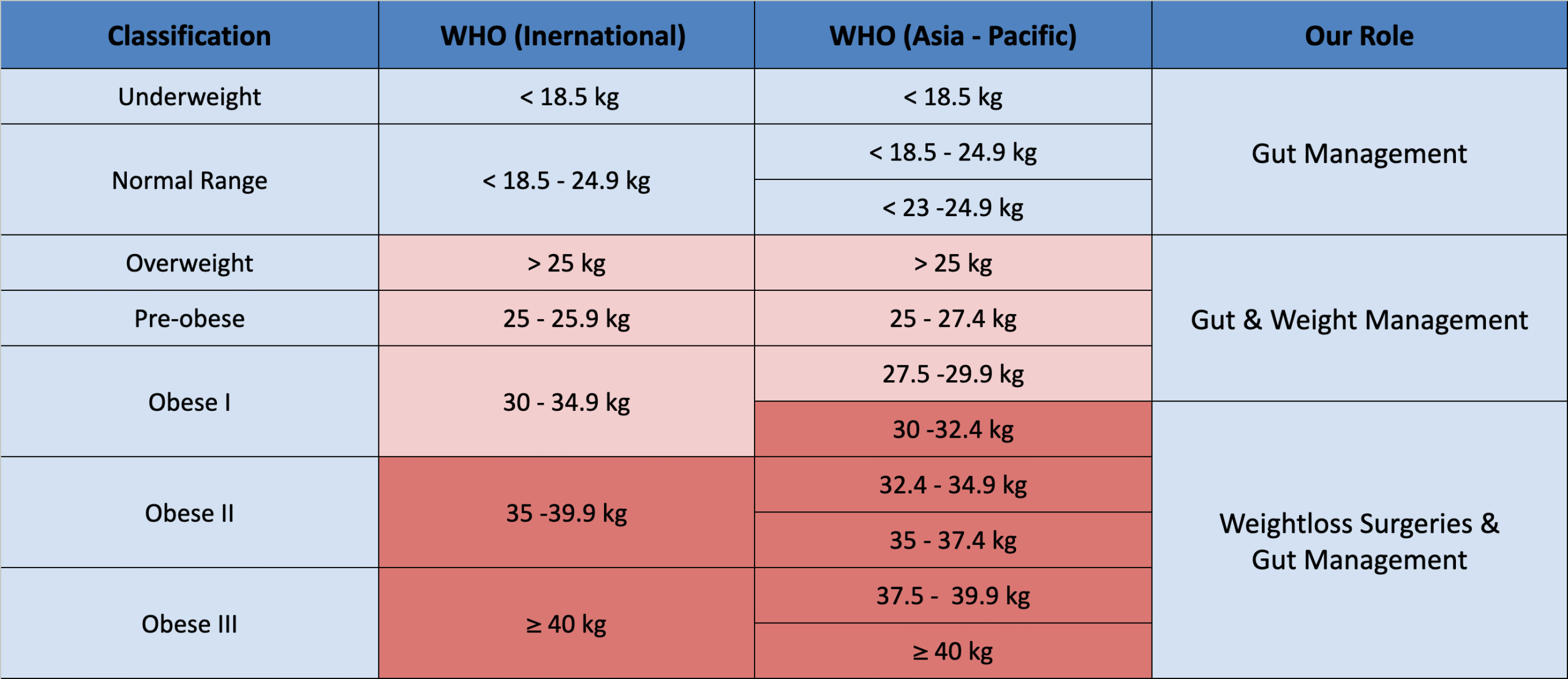Digestive Health Institute — BMI Calculator
Target
22.0
Tip: Use the target slider to visualise a healthy goal.
—
—
—
High health risk — immediate medical consultation recommended.
Health insights
Underweight: Risk of nutrient deficiency.
Normal: Maintain healthy lifestyle.
Overweight: Increased metabolic risk.
Obesity I: Structured weight management recommended.
Obesity II: High risk — specialist assessment advised.
Obesity III: Very high risk — urgent specialist care recommended.
Obesity Classification for Asian Population





